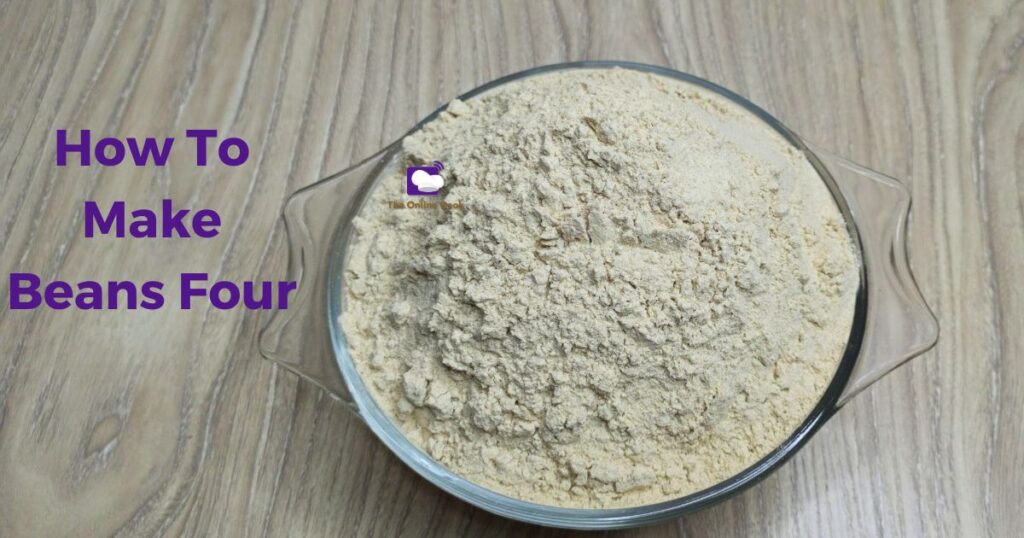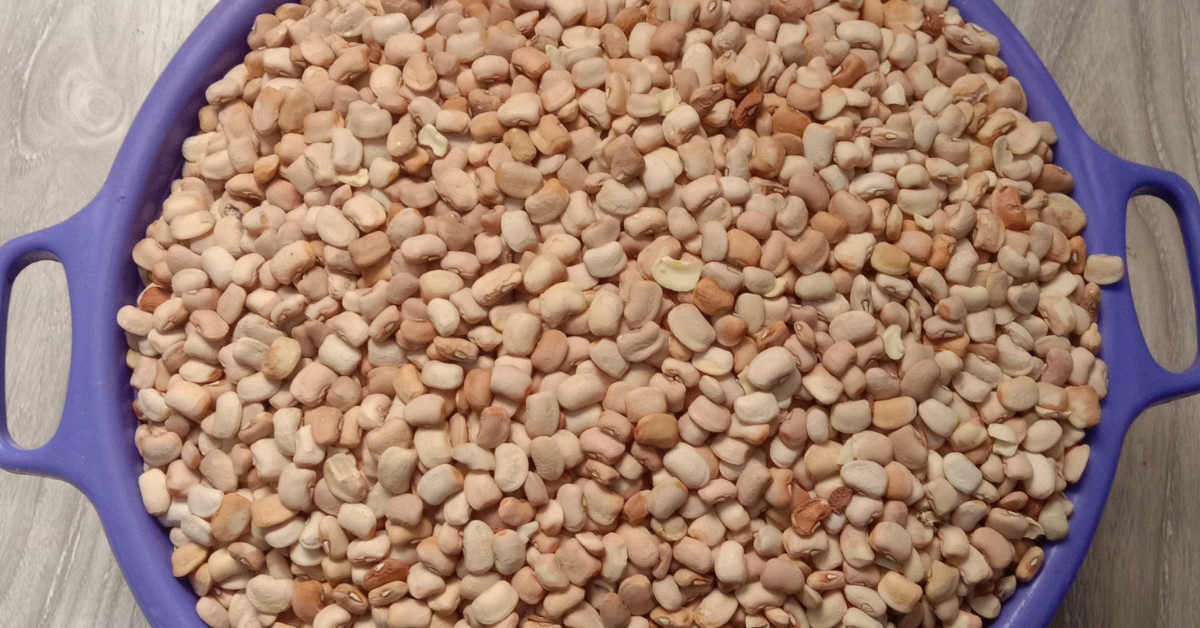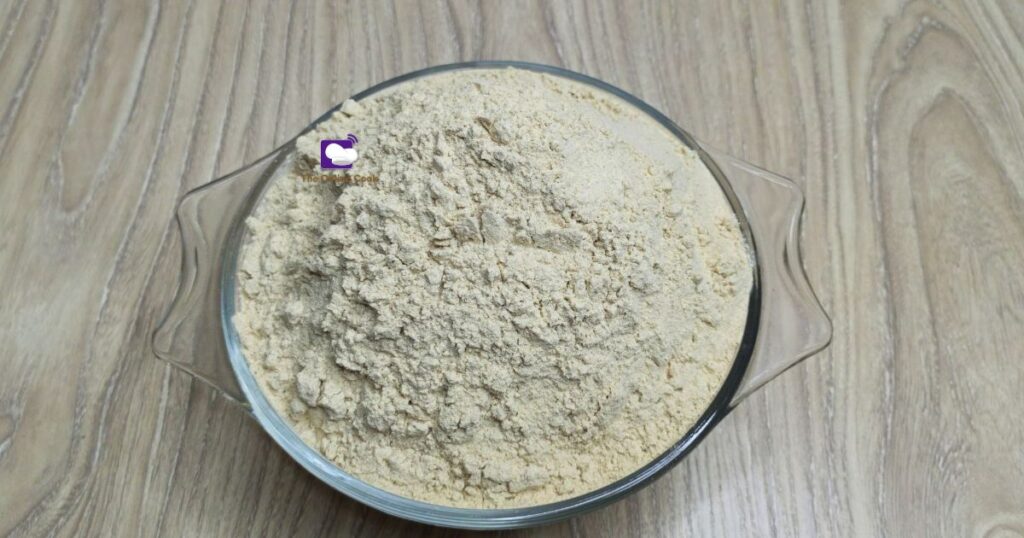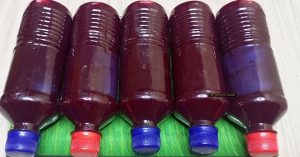
What is beans flour?
Beans flour is a smooth powder made from raw uncooked beans. In this recipe I will be writing on how to make beans flour as well as how to preserve beans flour.
Beans flour is fast becoming a staple Nigerian kitchen ingredient because of its benefits which I would be writing about in this post.
Over time, our environment has evolved to being fast paced and as a result, many people are moving towards easy cooking.
In Nigerian cuisine, the two common foods cooked with beans flour are akara and moi moi .
Beans Dishes
Beans are an integral part of Nigerian cooking and there are several beans recipes you would love.
Here are some beans dishes enjoyed by Nigerians.
- Beans And Plantain Porridge
- Beans and yam porridge
- How To Cook Nigerian Beans With Palm Oil
- Akara
- Moi moi
- Ewa Agoyin
- Ekuru or ofuloju
The above mentioned are to state some of the beans recipes you may want to try with Nigerian beans.
Beans flour used for Nigerian recipes are made of three major types of Nigerian beans which are listed and explained below.
Types of Nigerian Beans
There are three (3) major types of beans popularly used for cooking in Nigeria namely;
Oloyin Beans: Oloyin is a Yoruba word which means ‘with honey’. This is a specie of brown beans which is name oloyin beans because it is very delicious when it is cooked.
Also this type of beans cooks really well and fast although it is more expensive than the other.
Despite its high price when compared to other types of beans in Nigeria, oloyin beans is still well loved by Nigerians because of its taste and short cooking time.

Olotu Beans: This beans is a darker shade of brown when compared with oloyin beans. It does not cook as fast as oloyin beans.
When compared with oloyin beans, olotu beans has its own unique taste. It is very versatile and can be used to make a wide variety of beans dishes.
White/Iron beans: As the name implies, white beans are white coloured beans with black eyed colour in the middle.
In terms of cooking time, Iron beans cooks faster than olotu beans and has almost similar cooking time with oloyin beans. But the taste is quite different from the two brown beans listed above.
Iron beans comes in small sizes or big sizes and it is the cheapest types beans in Nigeria because of the low demand.
All the above stated types of beans can be used to make beans flour. I will now be writing on how to prepare beans flour.
How to make beans flour
- Get any beans of your choice from the types of beans stated above
- Hand pick the beans to remove any the dirt such as shaft and stone
- Pour the picked beans into a big bowl
- Add enough water to cover the beans
- Allow the beans soak in the water for 5 minutes
- After 5 minutes, peel the beans
- To peel the beans put both hands in the water to trap the beans in between your palms
- Move your palms back and forth in a bid to continuously rub the beans against one another
- You will gradually notice that the brown beans back is peeling revealing the white beans in it
- Do this till all the beans back are peeled.
- Separate the peeled beans from the back by pouring the water into a basket.
- Add more water and keep doing this until all the brown back has been sieved out.
- Spread the beans in the hot sun till it dried completely.
- To ensure that beans flour doe not spoil easily, you have to make sure that it is properly dried.
- Better still, put the beans in a dehydrator in order to get the wet beans quickly dried
- When the beans is completely dried, blend dried peeled beans to powder form.
Beans flour is ready.

Uses of Beans Flour
Here are some the uses for the beans flour that I just wrote about how to produce.
Soups: Beans flour is used as a great substitute for raw beans in making beans soup.
A popular type of this beans soup is gbegiri soup. Gbegiri is a beans soup enjoyed by the Yoruba people in Oyo state which is combined with amala, goat meat stew or assorted meat stew and ewedu soup .
This combination is called abula.
When cooking gbegiri with beans flour, the process of first peeling raw beans, then cooking it till it becomes soft before sieving it to get a smooth paste is avoided.
This helps to reduce the cooking time by at least 30 -45minutes.
Pudding: Beans flour is used to shorten the preparation time of using raw beans to make steamed beans pudding dishes such as moi moi , ekuru or ofoloju.
When using beans flour for beans pudding, the process of peeling the beans as well as grinding the peeled beans to a smooth paste is removed.
Instead simply mix the beans flour with water till it form a smooth paste. For pudding, beans flour would save you at least 30 minutes.
Fries and Chips: making Akara With Beans Flour is very easy and fast with beans flour. Some other fried foods that you can use beans flour are akara chips, yam burger and many more.
How to preserve beans flour
You may have noticed that a lot of time and effort goes into the process of making beans flour. As a result it will be counter-productive to make beans flour in small quantities.
When beans flour is made in large quantity, the next line of action would be how to preserve the beans flour in order to make sure that it does not spoil.
- Get a clean and dried storage container made of glass or plastic. You can also use a food pouch
- Pour the beans into the container
- Ensure that the container is properly sealed so that liquid and dirt will not easily get in
- Keep the storage container in a cool, clean and dry place.
Typically beans flour has a shelf life of 6-8 months when properly preserved.
Thank you for visiting my blog and reading my recipe. I would love if you browse through this blog to read all the amazing recipes I have here.
As a matter of fact, there are over 80 Nigerian recipes on how to easily make different Nigerian dishes.
The Online Cook © 2023

